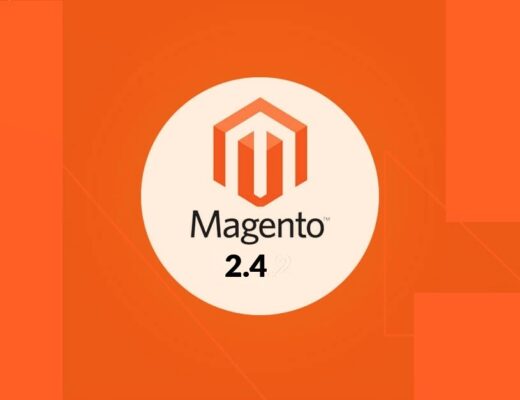In the ever-evolving world of e-commerce, choosing the right platform for your online store is crucial to your success. With numerous options available, it can be overwhelming to determine which platform is the best fit for your business. Two popular and powerful contenders in the e-commerce arena are WooCommerce and Magento. Both are open-source platforms that offer robust features and flexibility to create and manage online stores. In this blog, Yukti Digital will explore and compare WooCommerce and Magento in 2023 to help you make an informed decision for your online business.
Overview Of WooCommerce
WooCommerce, acquired by Automattic (the company behind WordPress), is a popular e-commerce plugin that turns any WordPress website into a fully-functional online store. With over 5 million active installations, WooCommerce powers a significant portion of e-commerce websites worldwide. If you hire a WooCommerce developer it will offer a user-friendly interface, extensive customization options, and a large community of users and developers.
The following are some of WooCommerce’s best features:
Simple Setup
WooCommerce is easy to set up, enabling users to launch their online store quickly and without difficulty.
Integrating A Theme With Advertisements
Theme integration is simple, allowing users to choose from a variety of themes to alter the appearance and feel of their store.
Products Available
Hire developers will provide a range of product choices, including editable product pages and numerous payment methods.
Alternatives For Flexible Shipping
It features versatile shipping options that let users modify the delivery charges and rules for their stores.
Tax Calculations That Are Automatic
Users can set up automated tax computations with WooCommerce to make sure they adhere to tax laws.
Accounts Of Clients
Clients who do so can see their order histories and other account information.
Reviews And Ratings Of Products
Customers can rate products and leave reviews on WooCommerce using this function.
Inventory Control
With the robust, integrated inventory management system, users can keep tabs on stock levels and availability.
Scalability
Due to WooCommerce’s strong scalability, businesses may develop their online store as their output increases.
Overview Of Magento
Magento, now owned by Adobe, is a leading open-source e-commerce platform that caters to both small businesses and large enterprises. If you hire a Magento developer it will offer a comprehensive set of features and advanced customization capabilities. Magento has a loyal user base and is known for its scalability and performance, making it a popular choice for high-volume online stores.
Here are a few of Magento’s standout functions:
Various Store Support
Businesses may manage numerous distinct stores from a single dashboard thanks to the multi-store capability.
Marketing & SEO Features
Many SEO and marketing options are available with Magento, including sophisticated SEO settings, flexible URLs, and user-friendly content management systems.
Mobile-Friendly
Because Magento is built with mobile-friendly technology, customers can access their preferred goods and services on any platform or device.
Customers Are Segmented
Companies can tailor marketing campaigns and the shopping experience for various customer categories using Magento’s customer segmentation capability.
Simple Checkout Procedure
In Magento, the checkout procedure is simple and convenient. Consumers don’t need to go through a lot of hoops to check out swiftly.
Modern Analytics
Companies may monitor client behavior, preferences, and purchasing patterns in real time with the aid of built-in analytics.
Individualized Storefront
Website development will enable companies to alter the look and feel of the store to better reflect their brand identity and offer customers a distinctive shopping experience.
Scalability
Large amounts of orders and products may be handled with ease with Magento, which is very scalable.
Integrations Of API
Users can link with well-liked third-party programs and services, such as payment gateways and shipping companies, using Magento’s API connection options.
WooCommerce vs. Magento Comparison
Let’s dive deeper into the key factors that can help you determine which platform is better for your online store in 2023.
Flexibility And Customization
When it comes to flexibility and customization, both WooCommerce and Magento offer robust options. However, there are some differences between the two platforms.
WooCommerce: As a plugin for WordPress, WooCommerce inherits the flexibility and customization capabilities of the popular CMS. It allows you to easily customize your online store using WordPress themes and plugins. WooCommerce also offers a wide range of free and premium themes, extensions, and plugins that can enhance the functionality of your online store. Additionally, WooCommerce provides a built-in content management system (CMS) that allows you to manage products, orders, and other aspects of your online store.
Magento: Magento, on the other hand, offers more advanced customization capabilities. It provides a wide range of options for creating and managing product catalogs, pricing, inventory, and more. Magento also offers a vast library of themes, templates, and extensions that can be used to customize your online store. However, customization in Magento may require more technical expertise compared to WooCommerce, as it has a steeper learning curve and may require coding skills.
Verdict: WooCommerce and Magento both offer flexibility and customization options, but WooCommerce may be more user-friendly for beginners, while Magento may require more technical expertise.
Scalability And Performance
The scalability and performance of an e-commerce platform are critical for online stores that anticipate high levels of traffic and sales.
WooCommerce: WooCommerce is known for its scalability and performance, especially when used with a reliable hosting provider. As a plugin for WordPress, it benefits from the scalability of the WordPress CMS, which can handle large amounts of traffic and content. WooCommerce also offers a range of caching options and performance optimization plugins that can help improve the loading speed of your online store.
Magento: Magento is renowned for its scalability and performance, making it a popular choice for large enterprises and high-volume online stores. It is designed to handle large catalogs with thousands of products and millions of customers. Magento offers advanced caching options, indexing, and other performance optimization features that can enhance the speed and performance of your online store. However, due to its complexity, Magento may require more server resources compared to WooCommerce.
Verdict: Both WooCommerce and Magento are scalable and performant, but Magento may be a better choice for large enterprises and high-volume online stores, while WooCommerce may be suitable for smaller businesses.
Ease Of Use
The ease of use of an e-commerce platform is crucial for businesses with limited technical expertise or resources.
WooCommerce: WooCommerce is known for its user-friendly interface and easy setup process. Since it is a plugin for WordPress, it inherits the intuitive and familiar WordPress dashboard, making it easy for users who are already familiar with WordPress to navigate and manage their online store. WooCommerce also provides extensive documentation and a large community of users and developers, which can be helpful for beginners.
Magento: On the other side, setting up and managing Magento may require more technical know-how due to its steeper learning curve. It has a more complex interface compared to WooCommerce, which can be overwhelming for users who are new to the platform. Magento offers extensive documentation and community support, but it may require more time and effort to become proficient in using the platform.
Verdict: WooCommerce is generally considered more user-friendly and easy to set up, making it a better choice for users with limited technical expertise, while Magento may be suitable for businesses with experienced developers or technical teams.
Features And Functionality
The features and functionality of an e-commerce platform are crucial for creating a feature-rich and customer-friendly online store.
WooCommerce: WooCommerce offers a comprehensive set of features, including product management, inventory management, order management, payment gateways, shipping options, and more. It also provides a wide range of free and premium extensions that can enhance the functionality of your online store. WooCommerce is also highly customizable, allowing you to add additional features and functionalities as needed.
Magento: Magento offers a vast array of features and functionalities that cater to both small businesses and large enterprises. It provides advanced product management, inventory management, order management, pricing options, and more. Magento also offers a robust set of marketing and SEO tools, making it a popular choice for businesses that require advanced marketing capabilities. Additionally, Magento has a strong focus on B2B functionalities, making it suitable for businesses that cater to wholesale customers.
Verdict: Magento offers a more extensive set of features and functionalities, making it a better choice for businesses with complex requirements or those that require advanced marketing and B2B capabilities. WooCommerce, on the other hand, offers a comprehensive set of features and is highly customizable, making it suitable for smaller businesses or those with simpler requirements.
Unleash Your Online Business With Ease
Both WooCommerce and Magento provide distinctive features and benefits when it comes to picking the best e-commerce platform for your company.
For those searching for a simple and affordable way to set up an online business, WooCommerce is the best option. For small to medium-sized organizations, it’s a wonderful option because of its scalability, SEO friendliness, solid support, and security.
When you require more sophisticated capabilities and wish to establish a more potent web presence, Magento is ideal. It is a fantastic option for larger enterprises due to its scalability, security, premium features, and SEO potential.
Your specific business requirements should be the deciding factor when deciding between WooCommerce and Magento. Both platforms will enable a profitable e-commerce store with careful planning and study.
Important Link :






